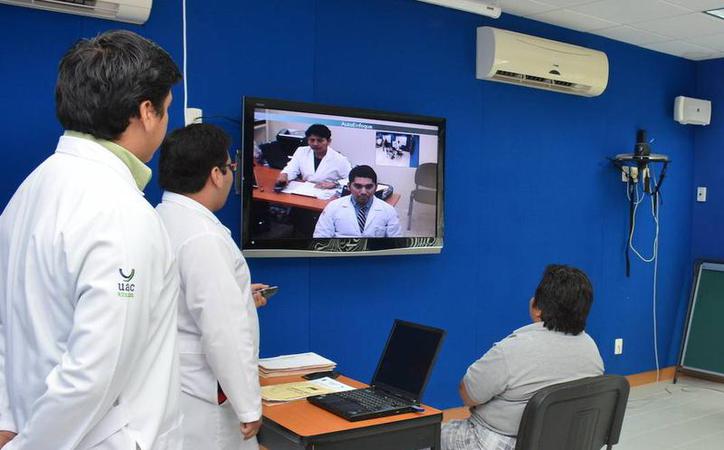In 2016, through this project, 15,589 patients were attended; the state is ranked first at the national level….
MERIDA — Ten years after its implementation, medical video-consultation in Yucatan has made an important advance, ranking first in the country in remote consultations with a total of 8,976, until the first half of 2017.
San Luis Potosí followed with 5,535; Tamaulipas, with 3,694; Nuevo Leon, with 2,311 and the State of Mexico, with 2,243.
Sharbel Gerardo Manzano Alvarado, State Coordinator of Video-medicine for the Health Services of Yucatan secretariat (SSY) said in an interview with Milenio Novedades that there are currently consultations in Internal Medicine, Gynecology, Pediatrics, Psychiatry, Nutrition, Psychology and Preoperative Assessments. In 2016, 15,589 patients were treated through this type of consultation.
“The use of Video-medicine in Yucatan has raised expectations in the health of citizens, is presented as a fundamental tool to achieve the consolidation of a comprehensive health system, supporting the development of strategic actions in decision making, promote the incorporation of specialty medical care at a distance, optimizing resources in health and breaking down geographical barriers,” said Dr. Manzano Alvarado.
The Public Health specialist added that the impact of video-medicine is evident in high poverty regions, allowing doctors to take the specialized medicine to areas that otherwise wouldn’t have access to this service.
“The power to give them this attention diminishes the over-saturation that exists in the second and third level hospitals and also provides a quality care in the specialized assistance, equity, coordination for possible unnecessary transfers that are required, avoiding unnecessary actions. In this way, we prevent, diagnose and give timely treatment to avoid complications that could endanger the patient’s life,” he said.
The interviewee said that Yucatan Video-medicine began in 2007 with video-consultation and video-education attention having two peripheral units Peto’s Community Hospital and Ticul’s Community Hospital; in 2009 the network was extended to the Tekax Urban Health Center, the San Carlos de Tizimín Hospital and the Valladolid General Hospital.
“In 2014 we inaugurated the Video-psychiatry unit in the Psychiatric Hospital; in 2015 the Celestun Urban Health Center and the Mobile Medical Units of Zací and Kabah joined the network and last year, care was opened at the Mérida Social Readaptation Center, we are currently in the process of expanding with six units more,” said Sharbel Manzano.
Source: sipse.com/milenio




